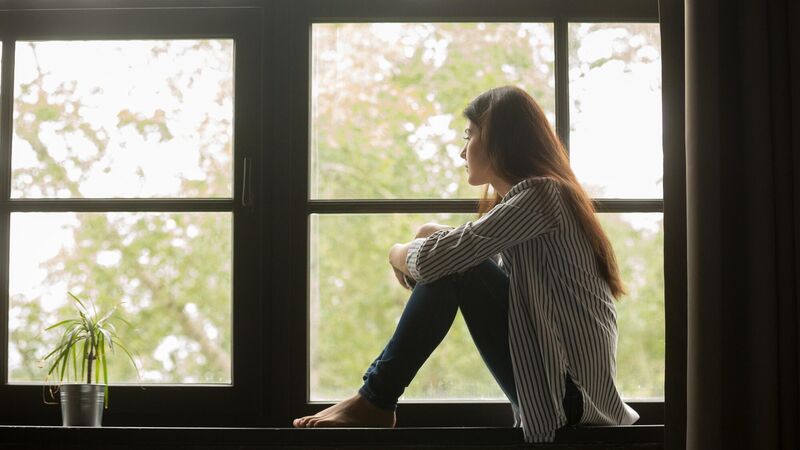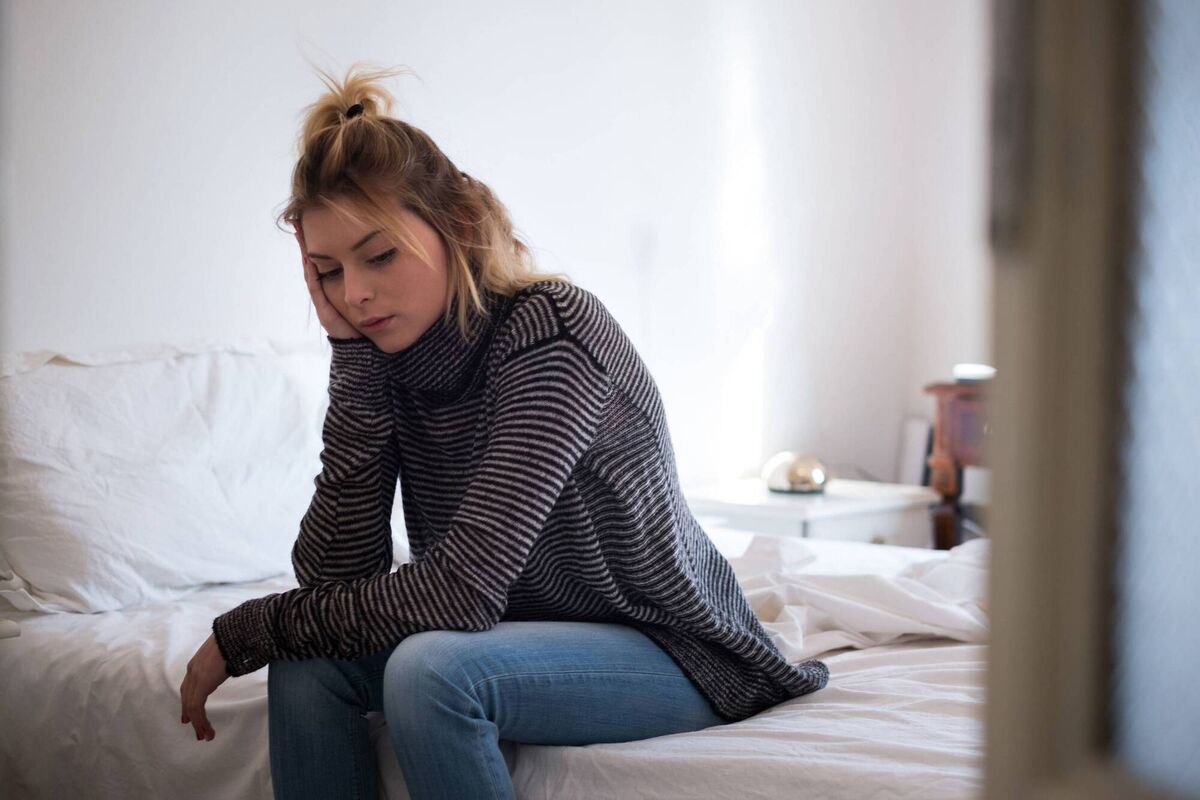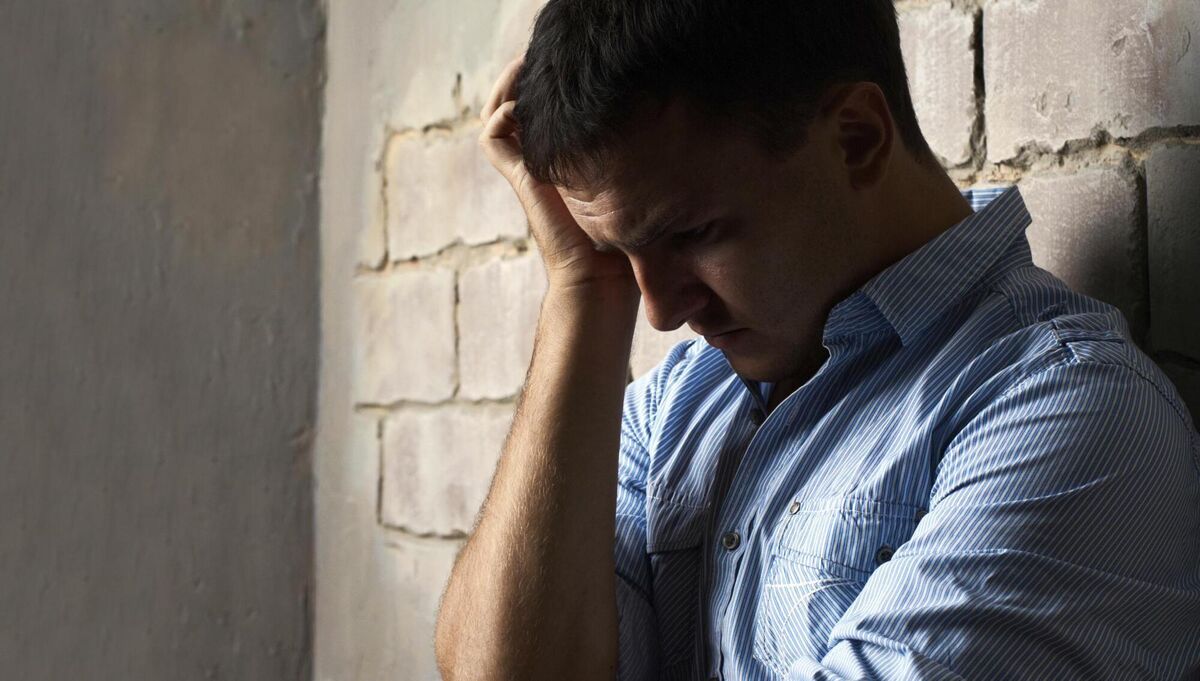Joyce Fegan: Counting the cost of a year in solitary confinement

All of our social distancing and restricted living has had a purpose, to keep us safe, but it has also had a cost. This cost is something we will have to examine and recover from.
Christmas mass on Zoom; agnostic, atheist, or lapsed follower of faith, there will be no in-person rendition of 'Silent Night' or the spine-tingling witnessing of a singer reach the dizzyingly high notes of 'O Holy Night'.
You will not be able to hear your local priest welcome back our wild geese and look around your local church to see what neighbour or classmate or old lover is home from Canada, Australia or London.
School Christmas plays on Zoom; parent, grandparent or aunt, there will be no live audience for the choirs of angels singing 'Deck the Halls' or 'Rudolph, the Red-Nosed Reindeer' for the first time.
Tin whistles are banned too.
We won't gather outside churches or in pub beer gardens, taking profound pleasure in simple act of spontaneous and annual catch-ups with friends of 20 years ago.
Spontaneity is gone now, too.
But we've got used to this way of living right? We've learned to live in a world almost without people. We've learned to stay back. We've learned a new way of living, that's going to take some conscious uncoupling come 2021.
We have just lived through the perfect psychological storm — a sort of forced solitary confinement and an over-reliance on digital communication.
Craig Haney, a social psychologist at the University of California, Santa Cruz, has studied and written about the effects of solitary confinement on human beings.
Read More
"Solitary confinement requires people to learn to live in a world without people. It’s the denial of meaningful social engagement with others. To tolerate that, you begin to structure your world, your psyche around not having the presence of other people in your life," said Mr Chaney.

When he was asked to describe a typical life in solitary confinement here are some of the things he mentioned:
"There’s a monotony: They’re surrounded by the same voices, the same smells, the same light, the same four walls. They’re also deprived of human touch; many of these places deny prisoner contact visits," he said.
It sounds familiar to life on earth in 2020.
"They’re typically not engaged in any kind of group activity but are isolated simply in a different place. These are grim, dehumanising and depriving environments. Often the prisoners say they don’t bother going out (when they are allowed)," added Mr Chaney.
It is a difficult environment for people "to tolerate". Depression and hopelessness are common symptoms of life in confinement, compared with prisoners in the general population, who get to engage with others and eat and exercise in groups. Furthermore, a majority of prisoners reported experiencing things like anxiety attacks, headaches, lethargy, trouble sleeping and a feeling of impending nervous breakdown.
Your social skills begin to "atrophy" too, people who have lived in confinement say other people become "aversive stimuli" to them. You simply stop wanting to engage with other human beings.
And it's not just prisons where the ill effects of confinement have been noted.
"It has indeed long been known that severe restriction of environmental and social stimulation has a profoundly deleterious effect on mental functioning; this issue has been a major concern for many groups of patients including, for example, patients in intensive care units, spinal patients immobilized by the need for prolonged traction, and patients with impairment of their sensory apparatus (such as eye-patched or hearing-impaired patients).
"This issue has also been a very significant concern in military situations, polar and submarine expeditions, and in preparations for space travel," said Stuart Grassian.
His report — Psychiatric Effects of Solitary Confinement was published in the .
Put simply, human beings were not designed to be apart. Being with humans is essential and integral to the existence of human beings.
The importance of human relationships to our health has been heavily studied.
One study, which examined data from more than 309,000 people, found that lack of strong relationships increased the risk of premature death from all causes by 50%.

Said another way — loneliness or social isolation has the same effect on our health as smoking up to 15 cigarettes a day has, and a greater effect on our wellbeing than obesity or physical inactivity.
Scientists also found that gathering and being together helps relieve harmful levels of stress, which can adversely affect coronary arteries, gut function, insulin regulation, and the immune system. And other research shows that caring for others triggers the release of stress-reducing hormones.
But it's not that 2020, has forced us all to be apart only. It has also forced us online too.
For years now psychiatrists have been warning us about our phone use and communication tools.
When we communicate face-to-face with one another person we use a host of non-verbal cues like eye-contact, tone of voice and various facial expressions.
These signals are picked up by the right-side of the brain, the hemisphere that links our bodies with our emotions. But when we text, email, Whatsapp and send DMs, these seven cues are not used. We've been doing a lot of scrolling, liking, forwarding, WhatsApping and Zooming these past few months.
“The more and more people spend time not using non-verbal signals and instead use mostly verbal ones — text with language that has this linear way of being distributed — the more you’re activating primarily your left hemisphere which in the brain is much more distant from the lower areas that help mediate emotion with the body,” says Dr Dan Siegel, clinical professor of psychiatry at UCLA School of Medicine.
Another leading American psychiatrist, Dr Bruce Perry, said digital communication and social media means we have “invented a world that is relationally different to the one our brain prefers.”
The human brain is not designed for the modern world, argues Dr Perry, because for thousands of generations we lived in small, multi-generational family groups, where there was more touch, more eye-contact and more conversation and these all fed the brain in a “rich way”.
He adds that humans feel most rewarded and safest when they are with people they love and respect. And when you are not being rewarded via relationships we turn to unhealthy ways of living.
Relationships, relating, connecting, being with others, bumping into old flames or old soccer nemesis are at the core of who we are. All of that has gone this year and for Christmas, a time when we connect back to the motherboard of home, it's gone too.
All of our social distancing and restricted living has had a purpose, to keep us safe, but it has also had a cost. This cost is something we will have to examine and recover from, so that staying apart and being online do not become socially acceptable ways of existing.
As one person said to me this week, who has weathered many storms and is always known for their zest for life: "I won't say I'm feeling down, I just miss my life. I miss going for coffee and a few pints on a Wednesday evening."
We all had a life, no matter how small, or seemingly insignificant, that we need to get back to.






